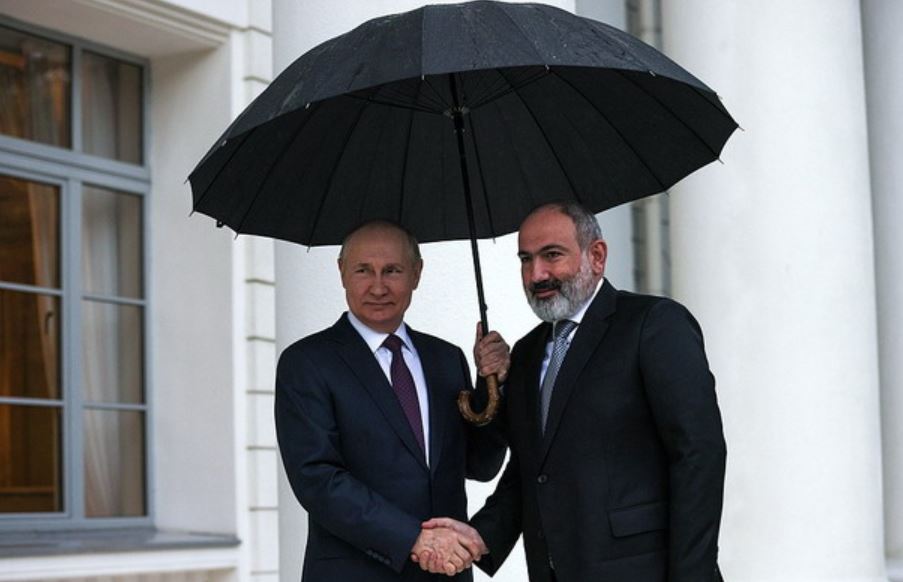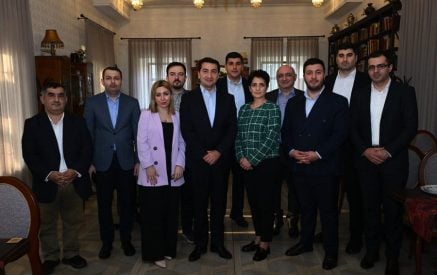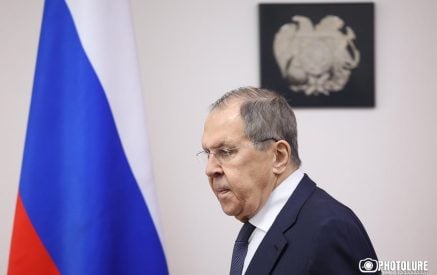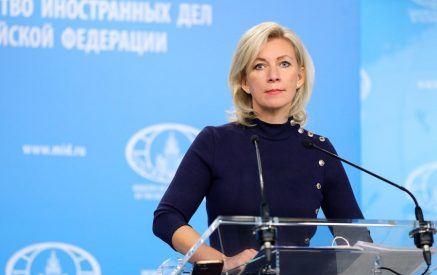“At least in the last month, it has become obvious that it is fundamentally unacceptable for Russia for the EU, the USA, or the collective West to become active in the South Caucasus, in particular, in the process of settling the Armenian-Azerbaijani conflict,” this opinion Boris Navasardyan, President of the Yerevan Press Club, expressed in the conversation with Aravot.am, referring to the statement of the representative of the Russian Foreign Ministry, Maria Zakharova.
Zakharova, commenting on the military clashes near the village of Tegh, said in a briefing that the activation of Western countries in the South Caucasus creates additional regional instability, which Russia has repeatedly warned about. “We warned that the investment of other actors and structures in the South Caucasus, which have never dealt with the solution of the given conflict, will not have added value and will not be the announced result. The result will be that they will either take advantage of the situation or lead to escalation, destabilization, and away from the peaceful settlement in sight.”
According to Boris Navasardyan, many statements of Russian officials, including Zakharova, allow us to assume that there will be specific actions directed against the EU observation mission. “It’s hard to say to what extent the recent escalations at the border are related to this, but Russia’s message to Baku was very clearly understood: they will not be against a certain escalation if it allows discrediting the EU observers and shows that their presence does not strengthen Armenia’s security in any way.”
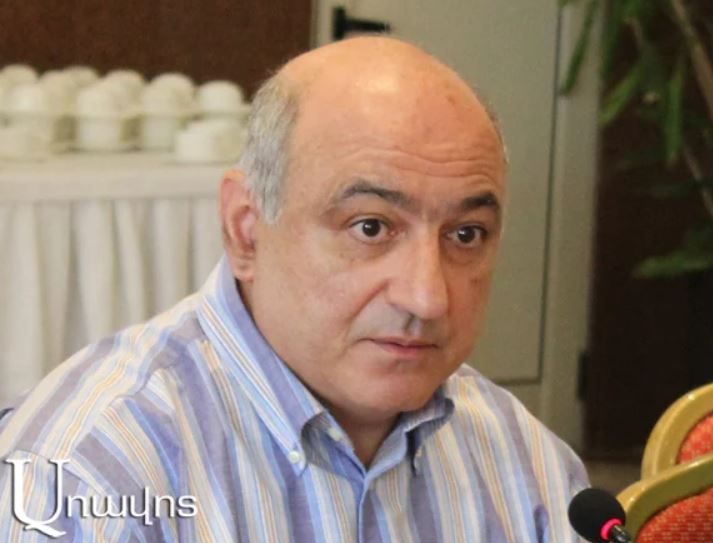
Boris Navasardyan, President of the Yerevan Press Club
According to Navasardyan, regardless of whether there is a direct connection between those warning statements and the clashes of the last days or not, they should be considered in the same context and be sure that this or that step against the observers can happen at any time. Zakharova also said that Moscow demanded an explanation from Yerevan regarding the participation in the NATO military exercises, reminding that Yerevan refused to hold the CSTO military exercises in its territory. In response to the question of whether Russia sees a threat from Armenia due to the deepening of relations with NATO or an attempt to deepen them, Navasardyan said taking into account that Russia is increasingly worsening its relations with the West, it can be assumed that any deepening of the South Caucasus countries and various structures of the West relations between Russia perceives as a threat to its interests, and this refers to the manifestations of possible cooperation between Armenia and NATO.
Read also
“Most likely, after the announcement that Armenia will participate in the “Defender 23″ exercise, it could not be followed by certain steps or pressures from Moscow towards Yerevan. Although we have not heard such explanations officially, there is no need to doubt that our non-participation in military exercises results from Russian pressure,” said Navasardyan.
The main threat for us, according to Navasardyan, is that if the other essential players in the region, Iran and Turkey, have a similar attitude towards the activation of the West, Azerbaijan is acting in coordination with Russia, there can be no other opinion. We appear in front of quite serious problems. “Especially, we see that our main window to the west, Georgia, also implements an inconsistent policy in terms of relations with the EU, the USA, and the collective West in general.” What should Armenia do in this situation; there are explanations that Russia, Armenia’s strategic partner, does not support it; Armenia is trying to find a supporter in the form of the West.
In this regard, Navasardyan said now it is tricky for Armenia to choose the proper behavior because cooperation with the West was presented as an alternative to relations with Russia for many years in our domestic political discourse. “Unfortunately, that perception has strengthened both in Armenia and in Russia. In the current situation, considering the rather multifaceted security threats, Armenia should realize cooperation with the West and the security sector, not as an alternative to Russia, but as a complement, which is insufficient to build Armenia’s security architecture. If we refuse to deepen our relations with the West, then a rather large vacuum is formed for the security of Armenia because Russia cannot fill this vacuum, even if there is an intense desire.
On the other hand, the dangers depend on Russia’s aggressive actions, not in the military sense, but in the mind of economic and communications problems. By assessing these risks, we must show that we are very consistent in our actions. It should not be the case that one time we agree to participate in the military exercises, one time we don’t, one time we are going to ratify the Rome Statute, and one time there is a postponement. Such an inconsistent policy will contain dangers in relations with the West and Russia.
We must show that we are determined and consistent but do not consider additional measures to ensure our security as an alternative to relations with Russia. Because, in any case, we have here a Russian military base, border guard troops of the Russian Federation, and ultimately a peacekeeping force in Artsakh, and these are important factors, regardless of how effective they are. If we provide such a more or less stable period, we may reach a thorough mutual understanding by all our partners.”
Nelly BABAYAN


















































